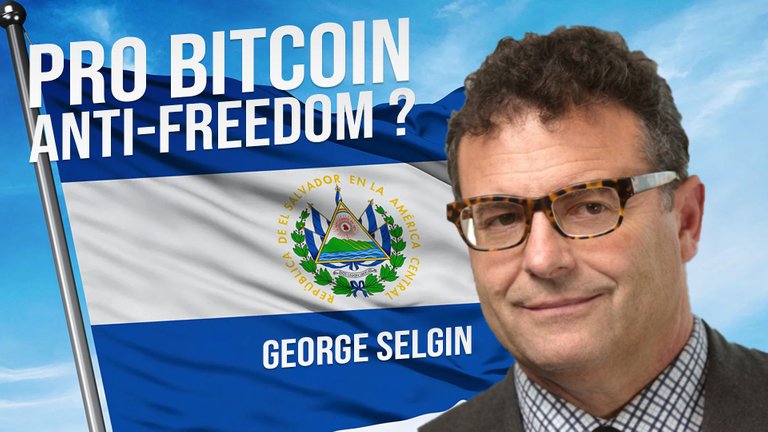
https://open.lbry.com/@NaomiBrockwell:4/el-salvador-pro-bitcoin-anti-freedom:3?r=9mvuwPzyZX55TFcyh5Yhwgm8HEXsrtSm
Bukele’s Bitcoin legislation in El Salvador is certainly a win for Bitcoin. But is it a win for freedom?
George Selgin, Senior Fellow and Director of the Cato Institute’s Center for Monetary and Financial Alternatives, dives into the legislation: the good and the bad.
The TLDR: The legislation is an awesome step, and can be considered a glass half full. But we shouldn’t apologize for the areas where it lacks. The Bitcoin community should urge that articles 7 and 13 be repealed because at best they’re unnecessary, but at worst they go against the ethos of freedom and choice, which is what Bitcoin is based on.
To make a tax-deductible (in the US) donation to my channel, visit https://cointr.ee/nbtv
Sign up for the free cryptobeat newsletter here: https://cryptobeat.substack.com/
Freedom of (currency) choice first!
absolutely!
I understand the objections to making use of BTC compulsory from a libertarian purist perspective but this is an essential aspect of making something legal tender and is a core expression of national sovereignty. This indeed is why it is such a monumentous development.
Nation States get to choose which currencies their people must accept (but do not get to constrain those currencies their people may accept).
To do away with this fundamental right of a Nation State is to do away with Nation States altogether.
I know that this what libertarian purists would like but there is currently no alternative (as much as I would like there to be).
Humans are fragile physical beings that require the security and safety of the group for survival (especially of their vulnerable young). In the age of modern weapons the Nation State is the smallest group that can provide this protection.
You confuse exclusive legal tender with legal tender.
The law does not actually compel the acceptance of BTC by a merchant in a practical sense, only in a theoretical sense and to provide the customer the right to pay in BTC.
The purpose of the $150M fund, as I understand it is to allow merchants to immediately obtain the amount of USD that the goods were priced, irrespective of BTC-USD movements.
That is if the basket of bananas is priced at US$5 and a customer wants to pay in BTC the merchant charges whatever amount of BTC the app calculates and but the merchant gets $5 in his app (if they elect to receive in USD).
This means that the effect of the compulsion to accept BTC is actually just to make electronic BTC available as a means of payment.
The merchant is not actually forced to accept BTC itself, just to accept payment via BTC.
Thus ideas about monetary freedom are not actually infringed.
Customers are given the right to pay in BTC if they choose but merchants are not actually forced to accept it - there is no coercion, just choice.
While I loved the serious analysis in this video, you and George keep on asking the wrong questions. On the issue of impact on other countries treatment of Bitcoin the question is not: Is it "sovereign money" but: Is it "foreign currency" as defined by existing law in other countries.
The answer to that question is a resounding YES.
See for example in Australia.
https://www.ato.gov.au/law/view/document?DocID=TXD/TD201425/NAT/ATO/00001
El Salvador recognising BTC as legal tender makes it "foreign currency" in Australia and thus changes its tax and accounting status.